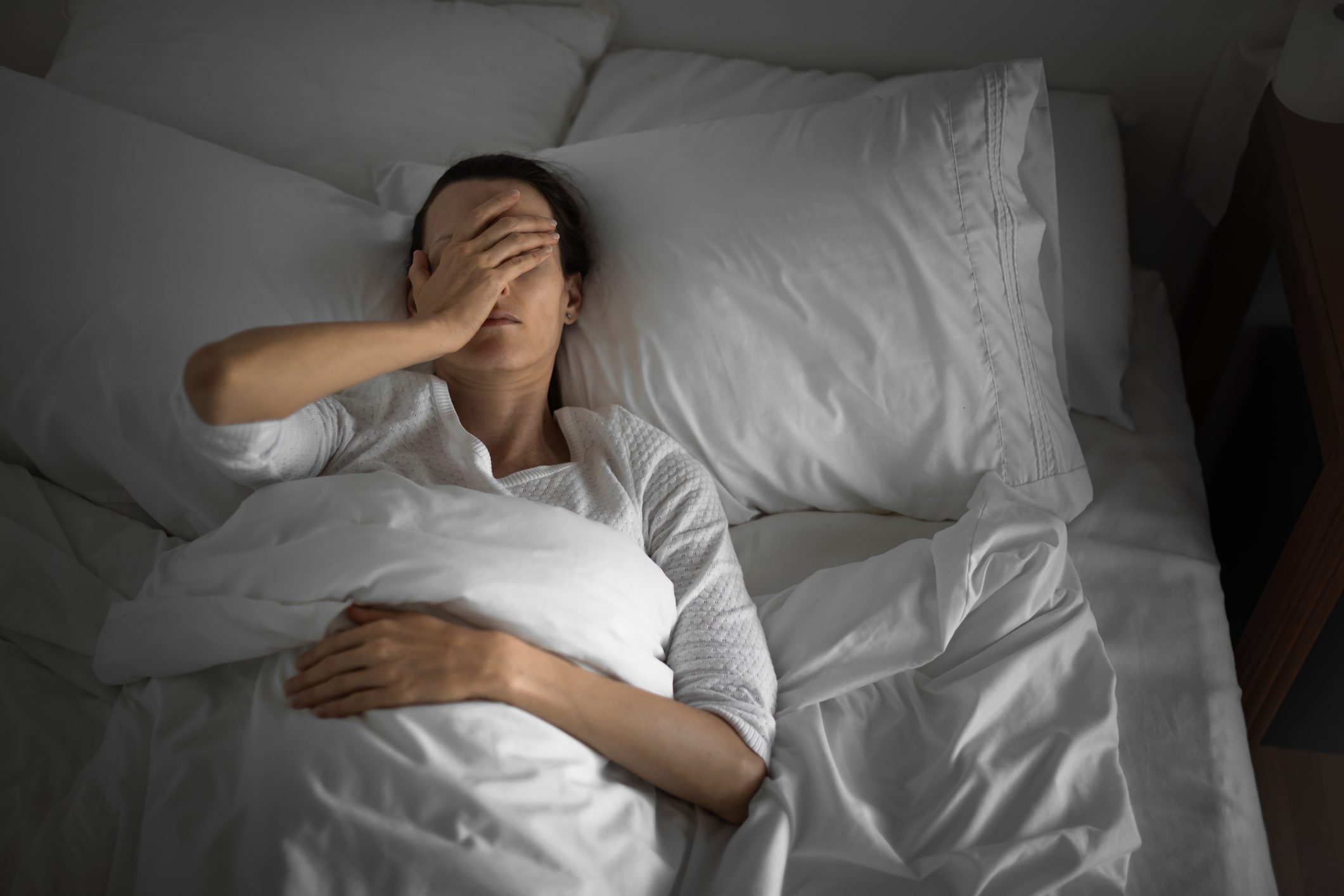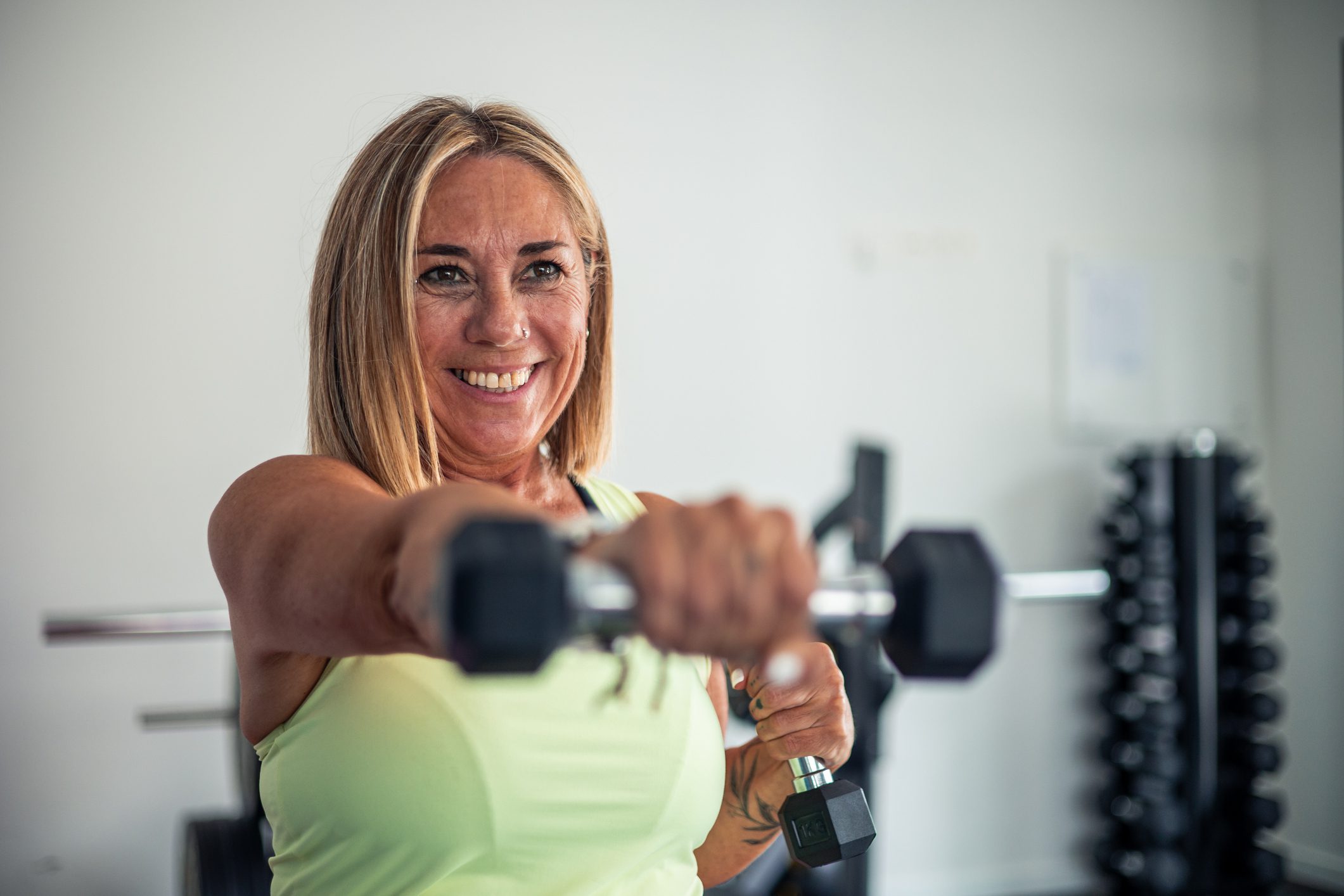
Published on Jun 05, 2023
Last modified on Apr 30, 2025
Healthcare Entrepreneur Jo Schneier Opens Up About His Menopause Experience As A Transgender Man
6 min read
Meet Joseph Schneier — or Jo, for short. This 45-year-old healthcare entrepreneur, who is based in Sunnyside, Queens with his partner and youngest child, has been working at the intersection of technology and social impact for his entire career, from projects on early childhood literacy to patient behavioral change to workforce development. For the past decade, Jo has been building Trusty.care, which focuses on making it easier for people to purchase the right health insurance and to know how to use it (while reducing out-of-pocket healthcare costs for consumers).
In honor of Pride Month, we caught up with Jo to learn more about his experience as a transgender man in menopause.
To start, can you share a bit about your transition story?
I grew up in a very conservative world where being LGBTQIA+ would have resulted in you becoming homeless. At the same time, I knew something was different with me. I knew I wasn’t straight and I would steal my brothers’ clothing when I was going out places, but I didn’t know the words for being gay or transgender.
I remember vividly the first time I saw a trans woman. Our religious group was protesting at Pride and a woman walked by. The kids started pointing and laughing and I just stared and was like, “Is that even allowed?”
I went on to move to Israel and have an arranged marriage to a nice Jewish man from Moscow. We had two children by the time I was 23, and I knew I had to leave. I went back to the US with the kids, but I didn’t know anyone. I was 25 and had been dropped by everyone I knew. The first group that accepted me was a very queer community of friends. At the time most people would have said I was androgynous since non-binary was not a term people were using. I lived in that space for a long while, but at some point I was able to relax and slowly stopped doing things I didn’t want to do.
By the time I was 30, people without asking used male pronouns with me at least 30% of the time. At some point, as younger people were making it easier to transition, I worked up the nerve to go to an endocrinologist and began to take testosterone. My life radically changed in terms of how I felt about myself — it was like waking up feeling like you are allowed to live in your own skin.
My life radically changed in terms of how I felt about myself — it was like waking up feeling like you are allowed to live in your own skin.
The hardest thing about transitioning is that it makes it hard to tell your story to people. When people ask why I got into startups I can’t say “Because I was the top Girl Scouts cookie seller on the East Coast and I fell in love with sales and business.” People aren’t used to meeting men that they perceive to be gay having kids that are only 20 years younger than they are. The most challenging thing was being diagnosed with ovarian cancer. I have spent the last six months on the Women’s floor of Memorial Sloan Kettering. They were great, but I have lots of people I know that don’t know I am trans and again, it just makes things challenging.
What has your menopausal experience been like so far? Anything that’s surprised you? What have the most challenging symptoms been?
The reason I was diagnosed with cancer actually was because I was perimenopausal and was experiencing ridiculous hot flashes. It hit me pretty hard pretty fast. I was getting migraines more than any time in the past and despite exercising like crazy, it became harder to keep weight off. It had been confusing because I also was diagnosed with hypothyroidism and at first I thought my symptoms were related to that. The hormonal shifts while being on HRT were very challenging and I opted for surgical menopause. Just get it over with. After the surgery I felt some relief emotionally but I still was dealing with hot flashes, exhaustion, and insomnia.
What have you found helpful in managing and/or treating symptoms: lifestyle changes, supplements, prescription medications? Any recommendations?
I take testosterone and if I take it consistently I find my symptoms to be much easier to handle. I really recommend exploring HRT. I have been really conscious of getting enough sleep even though it has meant taking a prescription drug for it. I think my main recommendation is you don’t just have to tough it out. There are some things that can help and it is ok to want to just alleviate symptoms.
If someone were to sit down with you and ask you questions about your trans menopause experience, what are 2-3 things you’d want them to know?
The first thing is that most women don’t seem comfortable speaking with trans men about the experience. Finding other non-binary or trans men can help a lot. There is not a lot of great literature or studies on menopause and being trans, so finding a community helps. Lots of trans men think they won’t go through menopause, but you will. It is a biological inevitability.
Finding other non-binary or trans men can help a lot. There is not a lot of great literature or studies on menopause and being trans, so finding a community helps. Lots of trans men think they won’t go through menopause, but you will. It is a biological inevitability.
What, in your opinion, is the biggest misconception about the transgender menopause experience?
The biggest misconception is that it doesn’t happen. Many younger trans people think that they avoid it if they are taking testosterone but that is not how the body works. The second thing is assuming you shouldn’t see an OB/GYN if you think you are experiencing menopause. GYNs are for us also.
Thinking ahead to the next 5 years, where are you hoping we’ll be by 2028 when it comes to trans menopause?
I would love for there to be more normalization and some ability for trans men to not be left out of the conversation. We may be men but we are also biologically female. That shouldn’t be controversial but it often is. This unwillingness to accept one’s biology leads to lack of medical care, misinformation on treatment options, and shame about discussing it. I want that to change.
I want no more trans men to experience what I have of being turned away by GYNs because I am trans. It has happened to all my trans male friends in NYC! We need better training of medical professionals.
I would love for more medical institutions to have language that is inclusive. Getting off on the women’s floor is rough.
I would love for there to be more normalization and some ability for trans men to not be left out of the conversation.


